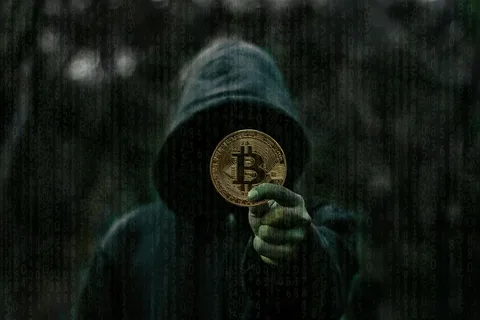Crypto Scams: Watch Out For These 5 Scams in 2022-23

Scammers are targeting cryptocurrency enthusiasts. Although cryptocurrency is decentralised, which offers privacy and security, the asset class isn’t free from criminals. Fraudsters use a variety of tactics to persuade victims into making fake investments.
Here’s a guide to some common crypto-scams so that you can avoid being scammed out of your hard-earned money.
1. Fake Crypto Exchanges and Crypto Wallets
Social media is abound with phony accounts selling Bitcoin, Ethereum, Dogecoin, and other cheap cryptocurrencies. Steer clear of these traps!
Sites that match these descriptions typically advertise oceanic savings on cryptocurrencies while being completely bogus. It’s not uncommon for platforms like these to guarantee untenable returns on investments or require an initial fee that’s foolishly high. And if you’re ever unlucky enough to try withdrawing your funds, you’ll probably realize at that point they’ve vanished without a trace.
2. Pump-and-dump Schemes
A pump and dump is a popular scheme in which investors are duped into buying an asset that is overvalued by a group who then sells their own holdings of the asset for profit.
The individuals behind these pumps take an unknown cryptocurrency and inflate its value with false or distorted information on social media, forums, and online communities. This is the “pump” stage. People buying in at this point raise the price as a result.
Many investors sell their crypto assets as soon as they reach full value, which is called “dumping.” This then causes a drastic decrease in price because other people want to get rid of their holdings before more losses happen. So be weary and cautious about where you get your information from; make sure it’s coming from a trusted source instead of an unknown or untrustworthy one.
3. Rug Pull Scam
In this type of scam, fraudsters pretend to be developers of cryptocurrency products in order to attract investors and get seed money for a fake new coin or other Web 3 project. Once they have raised a significant amount of money, they simply disappear with the investors’ funds.
4. Initial Coin Offering (ICO) Scams
likened to when a company offers stocks for the first time on the stock market in an , Crypto companies offer newly developed coins, (ICO) which investors exchange cash for. The funds raised go towards developing new software or services related to cryptocurrency ico example.
Unfortunately, some scammers use this system to take advantage of people as there is little regulation in place. They create fake startups without any prior history, which makes it tricky to discern a legitimate business from a fraud. ICO scams–like rug pulls–take money from early investors and then quickly shut down the enterprise. Examining the company’s whitepaper might help you identify an ICO scam before you invest.
4. Initial Coin Offering (ICO) Scams
initial coin offerings (ICOs) are a lot like initial public offerings (IPOs) in the stock market. Companies use ICOs to raise funds for crypto projects, such as coins, software, or services. Investors receive newly minted coins in exchange for committing cash.
Unfortunately, because there is little to no regulation in this area, scammers often take advantage of people by setting up fake startups with no working history. This makes it very difficult to distinguish between a legitimate business and a fraud. ICO scams are especially common, as they involve taking money from early investors and then quitting the enterprise shortly after. One way to try to avoid these types of scams is to examine the company’s whitepaper before investing anything.
5. Giveaway Scams
The quote, “there are no free lunches,” is also accurate in the cryptocurrency industry. A scam of this sort often features a false celebrity account on social media promising to give away crypto tokens or assets. More times than not, they convince people to send fiat currency or cryptocurrency to someone with the assurance that They will make a high return on their “investments”. Of course, as soon as you send them money, they’re gone forever.”
Do your own research to protect yourself from “get rich quick” schemes.